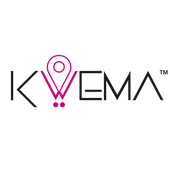Although the COVID-19 pandemic forced many companies to halt their activities for a couple of months, customer service has played a crucial role during this crisis. The reason is simple: people handle their concerns, doubts, issues, and needs on calls through a distance. A J.D. Power survey conducted between May and June 2020 found that the “Average Handle Time” for each call increased 55% of the surveyed companies.
Call center operations are essential to support various businesses and services that people need: healthcare, financial, food, transportation, and logistics services are just a few examples. However, the spread of COVID-19 continues, and working on call center offices can be a risk for employees if adequate measures are not taken seriously.
Paul Stockford, research director at the National Association of Call Centers in Tennessee, said that call centers have a “pretty high” risk of exposure for employees because they have tight spaces, some shared equipment, and many people coming in for different shifts. Another risk factor is the long shifts (8-9 hours) that most companies within this industry require.
Perhaps the most known case was a coronavirus outbreak in a call center office in South Korea in March 2020. Where 97 of 1,143 employees tested positive for COVID. In May, another case was released in Virginia, where there were six confirmed cases and one death due to coronavirus, in a child support center.
Recently, with the election of Joe Biden as president, he has set some new standards as a precaution to help reduce the spread of coronavirus yet still being worker-friendly. The Washington Post details this in a recent article. The article also detailed how President Biden urged OSHA to renew its practices regarding worker safety as these practices have been criticized a lot during the pandemic. It is hopeful that these new practices will be implemented soon in places such as call centers, where employees still have to go to work.
Although many employees continue working from home, others have returned to their physical work due to their jobs’ demands. When it comes to call centers, you can practice the following health and safety recommendations from the CWA to maintain a safe workplace from the COVID-19 spread.
- Make sure that all of your employees have their supplies and space. Avoid sharing standard equipment and tools such as pens, telephones, headsets, computers, chairs, among other things.
- Identify high touch surfaces and areas that can facilitate the virus’ transmission. Clean and disinfect them regularly.
- Make adjustments in the employees’ work schedules to avoid crowded work areas.
- Consider sending your employees to their home to continue working if feasible. If so, make sure you provide them with the right equipment for working from home.
- To maintain appropriate social distancing, it’s recommended that employers modify working spaces between coworkers and customers.
- Practice proper respiratory hygiene etiquette, such as covering your mouth and nose with a tissue or with your elbow when coughing or sneezing.
- Follow hand washing hygiene. Use soap and water or hand sanitizer, especially before eating, after going to the bathroom, as well as after blowing your nose, coughing, or sneezing.
- Consider monitoring employees’ temperature and symptoms regularly.
- Improve ventilation systems at your workplace. You can read a short guide based on CDC and OSHA standards here.
- Always encourage your employees to stay at home if they feel sick.
Kwema mitigates the safety risks that people face in the workplace by providing wearables. These wearables work frictionlessly to activate an emergency protocol. The device was initially focused on preventing gender-based violence. Once the product gained traction, the team quickly realized there were much broader applications, from automating roll calls during mass evacuations to Contact Tracing.
When trying to keep employees in your workplace safe, you already know it requires a lot of buy-in from your employees. Consistency is a critical factor in safety as one can never really predict when something will go wrong. With the rise of COVID-19 and the pressing need for contract tracing among workers, Kwema’s wearables provide a comfortable and smart way to keep your employees informed about any possible contacts. This can be especially useful for companies that employ workers who still need to come in, for example, call centers. The devices can trace who a worker came in contact with, diminishing the connection when someone tests positive for COVID-19.
Watch how Kwema is disrupting workplace safety
